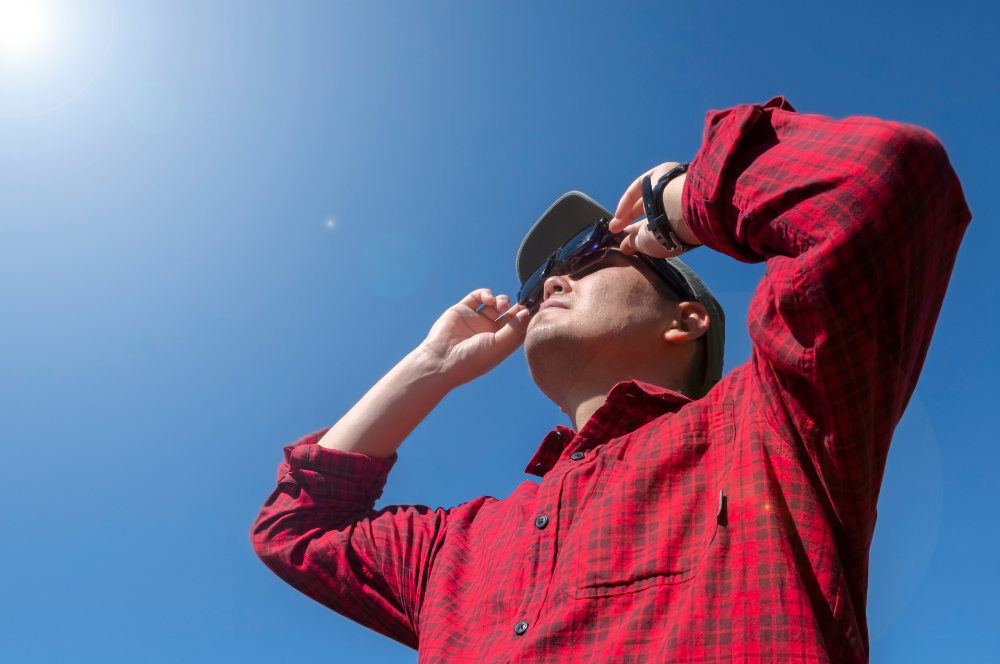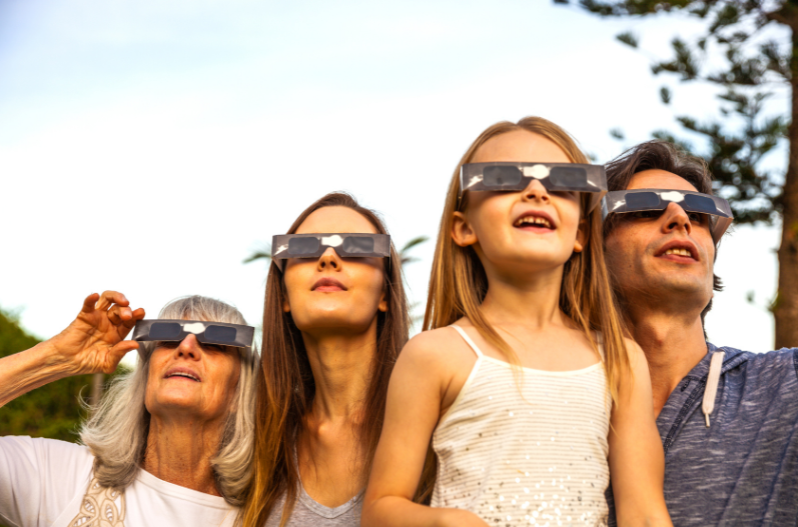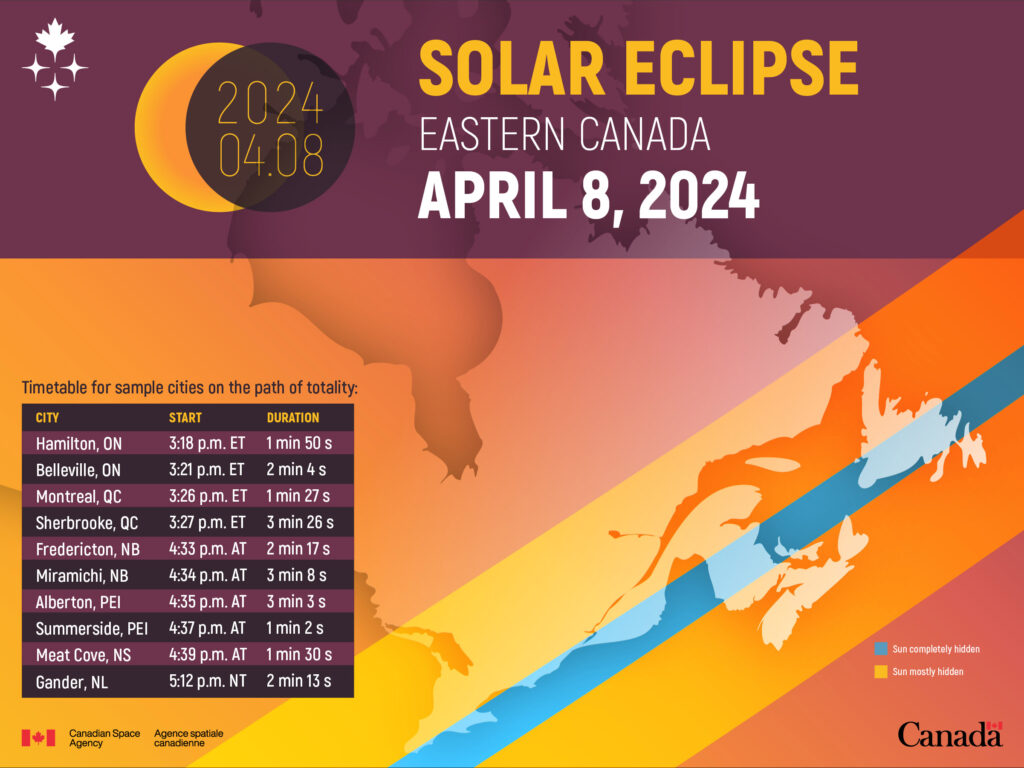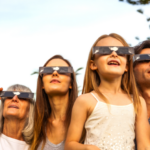Worksites should prepare for solar eclipses to prevent accidents and injuries as the sudden darkness can cause confusion and hazards in work environments. Proper safety measures and awareness training are essential to ensure employee well-being and minimize the risk of accidents during this unique celestial event.
Protecting workers during a total solar eclipse on April 8th, 2024 or any celestial event involves several measures to ensure their safety and well-being.
Here are some steps employers can take:
1. Education and Training:
- Provide education and training to workers about the potential risks associated with viewing a solar eclipse without proper eye protection.
- A total solar eclipse happens when the Moon completely covers the face of the Sun.
- Offer guidance on safe viewing practices, such as using approved solar eclipse glasses or indirect viewing methods like pinhole projectors.
2. Communication:
- Communicate with employees about the timing and duration of the eclipse, as well as any safety protocols or measures that will be implemented.
- The moment the edge of the Moon appears to touch the edge of the Sun is called first contact. The few brief minutes or seconds of totality eclipse glasses MUST ALWAYS be used for looking at the Sun. Eclipse glasses MUST be kept on for observing.
- Encourage workers to plan their activities accordingly and avoid looking directly at the sun without appropriate eye protection.
3. Provision of Safety Equipment:
-
- Supply workers who are exposed to direct viewing of the eclipse (such as those who work outside) with certified solar eclipse glasses or welding helmets with shade 14 lenses. Many options can be found on Amazon. Ensure that the provided safety equipment meets the required standards for viewing solar events safely.
4. Schedule Adjustments:
-
- Consider adjusting work schedules, break times, or tasks to minimize the need for outdoor activities during the peak of the eclipse.
- Plan indoor work or administrative tasks during the time of the eclipse to reduce exposure to potential hazards.
5. Outdoor Work Precautions:
-
- If outdoor work or driving is unavoidable during the eclipse, provide shaded areas or temporary shelters where workers can take breaks and avoid direct sunlight.
- Encourage frequent breaks and hydration to prevent heat-related illnesses, especially if the weather is hot during the eclipse.
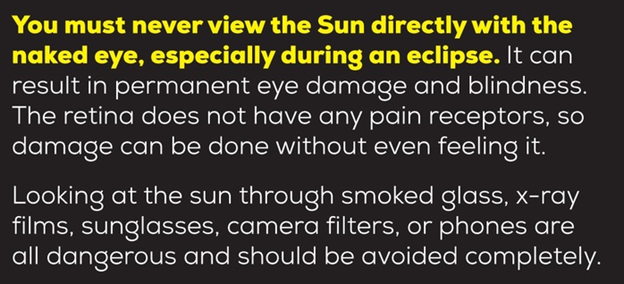
6. Supervision and Monitoring:
- Assign supervisors or safety officers to monitor workers during the eclipse and ensure compliance with safety guidelines.
- Establish a system for reporting any discomfort, symptoms of eye strain, or other health concerns related to viewing the eclipse.
7. Emergency Response Planning:
- Develop and communicate an emergency response plan in case of any incidents or injuries during the eclipse.
- Ensure that first aid supplies are readily available, and workers know how to access medical assistance if needed.
8. Remote Work Options:
- Consider offering remote work options for employees who may prefer to view the eclipse from the safety of their homes.
- Provide guidance on setting up safe viewing conditions at home and encourage employees to follow recommended safety practices.
By implementing these measures and prioritizing employee safety, employers can help protect workers during the total solar eclipse on April 8th and ensure a safe and productive work environment.
